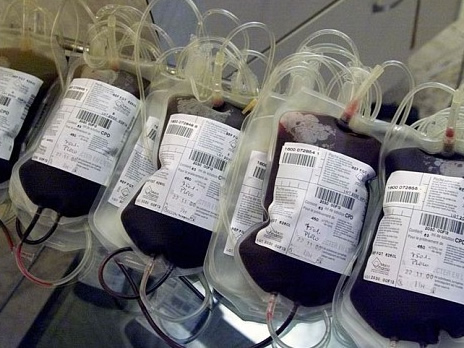Statistics from the National Blood Service Ghana show that about 74 per cent of demands made to the centre for the first three months of the year could not be met.
Blood is an essential part of healthcare delivery, and access to it at all times is extremely critical.
Health conditions like anaemia, cancer, haemophilia, kidney, liver and sickle cell diseases among others, are mostly treated with blood transfusions.
This has made it imperative for blood to be made available at all times particularly in emergency cases. This is where the work of the National Blood Service Ghana comes into force.
With a mandate to ensure accessible, timely and safe blood products for patients, the blood centre has over the years been serving hospitals like the Korle Bu Teaching Hospital, Legon, LEKMA, Mamprobi and Trust hospitals, among others.
However, it’s become a daunting task for the Blood Service to meet demands made in recent times due to an acute shortage of blood.
Statistics from the National Blood Service for the first quarter of 2021 shows that out of a total of 8,662 pints of blood demanded, only 3,087 pints were delivered.
The National Blood Service has attributed the current situation to the emergence of the Covid-19 pandemic which has reduced voluntary donations.
David Ahiadzro, the Head of Donor Recruitment at the National Blood Service, said blood supply dropped by 75 per cent
“Those places that we fall on for blood collection had to be closed. I’m talking about the schools and the churches,” he said to Citi News.
This situation is affecting healthcare delivery in many hospitals across the country. The National blood centre in trying to save the situation initiated the blood replacement system.
Under this system, relatives of patients are mandated to donate blood in place of the blood procured for their relatives.
The Trust Hospital in Osu is a popular hospital that receives many patients every day, but out of about 200 units of blood requested from the blood centre, only 58 were received.
The Hospital has had to resort to the 37 Military Hospital to procure blood for their patients. But this alternative comes with inconveniences.
Jacob Armah, the Acting Laboratory Manager at the Trust Hospital said his health centre is treated as an individual recipient in its transactions.
“We needed to go cash and carry whereas, with the National Blood Service, we had an arrangement where we were billed monthly,” he explained.
The Trust Hospital is not alone in this situation. The University of Ghana Medical Center is also contending with a similar challenge.
The Head of the UGMC laboratory, Pascal Hodogbe, has described the situation as stressful and frustrating.
“Some of the surgeries are emergency surgeries. The doctors will call on the spur of the moment that they need two units of blood for a surgical procedure and you immediately have to go scouting… just to get blood for the patient.”
“You can be doing throughout the night to get the blood for a procedure so it is stressful and frustrating,” Mr. Hodogbe said.
Health professionals are not the only ones affected by the situation.
Relatives of patients also struggle to procure blood for their loved ones admitted in the various hospitals.
Some of them had travelled from communities outside the Capital, Accra, but were yet to be served at the time of filing this report.
Most health professionals believe the only way to salvage the situation is through voluntary donations.
Source: citinewsroom.com


